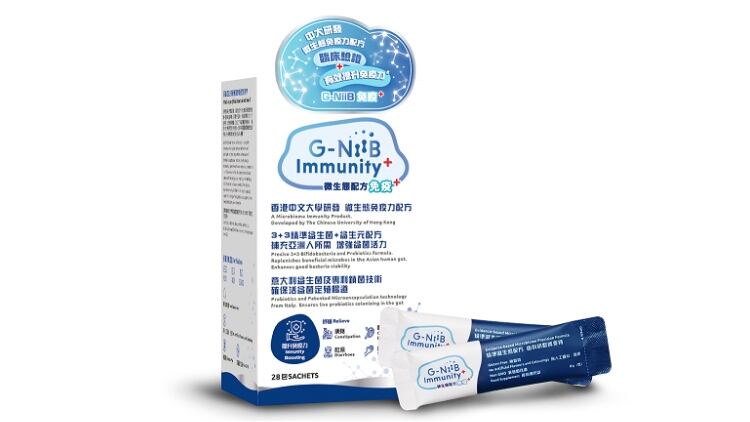These were the key outcomes featured in two recent publications.
The first, published in The Lancet Infectious Diseases, sought to determine the efficacy of SIM01, a micro-encapsulated lyophilised powder containing 20 billion colony-forming units of three bacterial strains with three prebiotic compounds, in alleviating PACS among adult recovered patients.
Researchers conducted a randomised controlled trial involving 463 participants recruited and screened between June 2021 and August 2022.
PACS, or long-Covid, manifests as a multisystemic condition, with symptoms persisting beyond four weeks and possibly lasting for several years following the initial infection. Typically impacting the respiratory, gastrointestinal, and neuropsychiatric systems, PACS is frequently accompanied by non-stopping fatigue.
All participants had a prior COVID-19 diagnosis and experienced at least one of the 14 symptoms outlined in the post-acute COVID-19 syndrome 14-item improvement questionnaire (PACSQ-14) for a duration of four weeks or more post-infection.
The participants were randomly assigned, with 232 placed in the SIM01 group and 231 receiving a placebo over a six-month period. Clinician follow-ups occurred at three and six months to assess compliance and monitor adverse events.
At the six-month mark, faecal and blood samples were collected for comprehensive analysis, including metagenomic gut microbiome assessment, complete blood count, liver and renal function tests, and inflammatory cytokine profiling.
Symptoms potentially alleviated by SIM01
At the six-month mark, individuals administered SIM01 exhibited notable improvements in various symptoms compared to the placebo group. There were significantly higher proportions of SIM01 recipients experienced relief in fatigue (OR 2.273, 95% CI 1.520–3.397, p=0.0001), memory loss (1.967, 1.271–3.044, p=0.0024), difficulty in concentration (2.644, 1.687–4.143, p<0.0001), gastrointestinal upset (1.995, 1.304–3.051, p=0.0014), and general unwellness (2.360, 1.428–3.900, p=0.0008).
While not statistically significant, more patients in the SIM01 group also reported improvements in joint pain, ability to exercise, shortness of breath, insomnia, muscle pain, coughing, hair loss, chest pain, and mood disturbance compared to the placebo group.
During the treatment period, adverse events were reported by 10% (22 out of 232) of individuals in the SIM01 group and 11% (25 out of 231) in the placebo group. The most common gastrointestinal adverse events, including diarrhoea, bloating, epigastric pain, abdominal pain, and flatulence, were mild and self-limiting.
All adverse events were determined by an independent safety adjudication committee as unlikely to be associated with the study products.
Metagenomic analysis of faecal samples revealed a significant increase in bacterial diversity (p=0.0019) and richness (observed number of species; p=0.051) in the SIM01 group compared to the placebo group at six months.
Additionally, the SIM01 group exhibited lower total numbers and relative abundance of antimicrobial resistant genes in the gut microbiome, along with significant changes in microbiome functions.
Notably, three microbial metabolic pathways involved in short-chain fatty acid production showed a significant increase in relative abundance in the SIM01 group after six months, distinguishing it from the placebo group.
The correlation analysis between microbial changes and symptom response highlighted distinct associations at both compositional and functional levels.
For instance, Bifidobacterium adolescentis exhibited positive correlations with relief in fatigue, gastrointestinal upset, and memory loss, while an increased relative abundance of Bifidobacterium bifidum correlated with alleviation in fatigue and general unwellness.
Recognising the complexity of PACS, researchers underscore the need for robust, globally validated assessment tools for individual symptoms, as current tools may not fully capture the diverse array of symptoms affecting different organs. Future studies should aim for a more diverse participant pool to validate the study's findings.
“Our findings support the potential of gut microbiome-targeted therapeutics for PACS in the post-COVID era.” Researchers wrote.
“To date, studies using probiotic intervention to alleviate PACS are sparse, and the optimal dose, duration, or type of bacteria requires further interventional trials.”
In a second paper published in the Hong Kong Medical Journal, data showed that children who took SIM01 experienced lower rates of adverse events after COVID-19 vaccination.
The result was obtained from an analysis of 95 children, aged five to 17 years old, who took it while receiving at least one vaccine dose between April and August 2022.
During this period, these children were administered one sachet of SIM twice daily. The supplementation commenced either a week before the first vaccine dose, continuing until a week after the completion of the second dose, or three weeks before the second dose, to a week after vaccination.
Comparatively, the BioNTech/Pfizer vaccine BNT162b2 exhibited a higher incidence of reported adverse events in children compared to CoronaVac (Sinovac Biotech).
Notably, the odd ratio for injection site symptoms with BNT162b2 was 2.59 (95% confidence interval [CI]=1.14-5.95; p=0.02). In addition, the odds ratios for arm/leg pain and fever were 6.5 (95% CI=1.44-60.89; p=0.08) and 13.78 (95% CI=2.22 to infinity; p=0.02), respectively.
Adverse events were generally similar between the two vaccine doses, though some effects were more pronounced after the second dose.
For instance, arm/leg pain (second dose: 18.6%, first dose: 10.5%), fatigue (including fatigue/ tiredness/lethargy or lack of energy/drowsiness; second dose: 26.7% vs first dose: 21.1%), and fever (second dose: 12.8% vs first dose: 7.9%).
Researchers observed that children on SIM01 in this study experienced fewer adverse events when receiving BNT162b2, particularly in terms of injection pain or local reaction (71% vs 84.3%-90.5% in Product Monograph data), tiredness (29% vs 51%-77%), headache (10% vs 38.2%78.5%), chills (3% vs 12.4%-49.2%), and myalgia (0% vs 17.5%-42.2%).
There was no evident decrease in adverse events among children receiving CoronaVac.
Researchers also determined that the microbiota derived SIM01 formula is well-tolerated in children age between 5 and 17. Among the 95 children analysed in this study, only two discontinued SIM01 supplementation because of abdominal distension, loose stool or mouth sores.
Source 1: The Lancet Infectious Diseases
https://doi.org/10.1016/S1473-3099(23)00685-0
A synbiotic preparation (SIM01) for post-acute COVID-19 syndrome in Hong Kong (RECOVERY): a randomised, double-blind, placebo-controlled trial
Authors: Raphaela I Lau, et al
Source 2: Hong Kong Medical Journal
https://doi.org/10.12809/hkmj2210590
Can a microbiota-derived health supplement mitigate adverse events after COVID-19 vaccination in children?
Authors: CM Chow, PK Cheong, J Hu, and Jessica YL Ching


